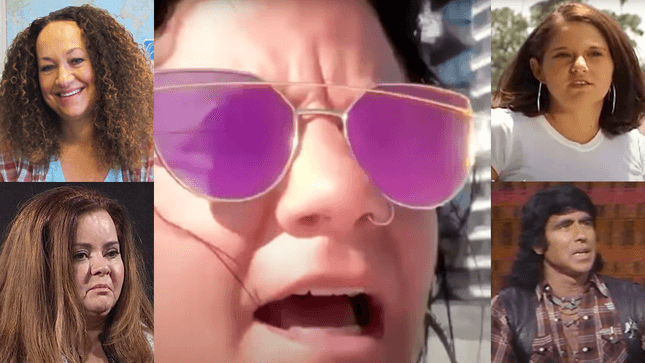All the Rachel Dolezals
Latest
Graphic: Jezebel (Photos: AP, Screenshots via YouTube)
Of all the absurd stories to come out of 2020, Thursday brought us perhaps one of the most absurd. Jessica Krug, or “Jess La Bombalera” as she at times styled herself, is a white Jewish George Washington University history professor specializing in Africa and the African diaspora who for years claimed a bewildering cornucopia of Black identities, before outing herself in advance of what sure seems like a forthcoming expose in a performative, self-flagellating Medium post in which she begged, begged, to be canceled.
-

-

-

-

-

-

-

-

-

-

-

-

-

-

-

-

-

-

-

-

-

-

-

-

-

-

-

-

-

-

-

-

-

-

-

-

-

-

-

-








































